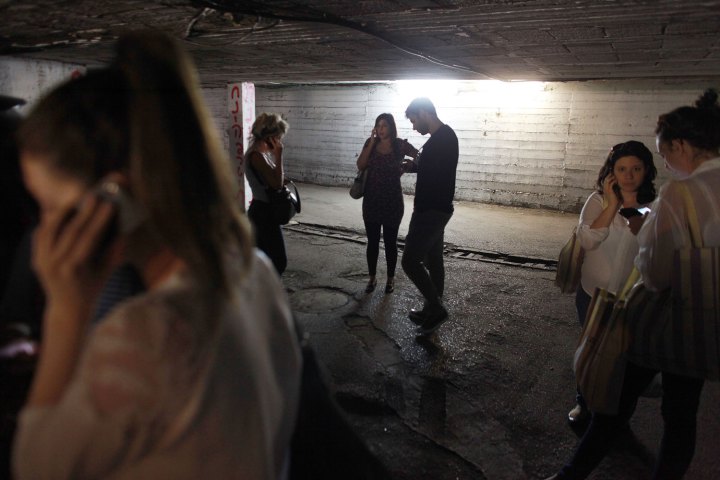The Myth And Reality Of Israel
By Samantha Vinokor

Israel might be the most complex place in the world. Everywhere, there are actual layers of history, civilizations built on top of one another in this ancient place.
Ancient Israel is everywhere you turn when you walk through this country, in the ruins, the names of places, and the attachments that people and nations have to Israel.
Then, there’s modern Israel.

There is no “average” Israeli, or “typical” Israeli experience. Instead, there are countless ways of being Israeli, and countless narratives to this country.
For many who love Israel, particularly those living abroad or who have had minimal firsthand exposure to Israel, there’s a disconnect between the myth of Israel and the reality on the ground. The myth of Israel can take different forms. It can be the Zionist dream, of making the desert bloom and creating an ideal society.
It can be the exact opposite – some see the myth of Israel as that of oppressors, of an alien people taking over and conquering the land. The myth of Israel exhibits itself in countless ways, from the stories of the Torah to tales of pioneers. It shows up in religious school classrooms, in advocacy groups, and on Birthright trips.
There’s nothing wrong with the myth of Israel. Seeing the country in this way provides a foundation of love for many, of connection through history and religion, of pride in the diversity and achievements of the modern country. The myth of Israel is the image that many Zionists bring to mind when they think of why they love Israel, why they support Israel, and why they work so hard on behalf of Israel.

I have my own Israel myths.
I take pleasure in the image of the sands of the shoreline developing into the modern metropolis of Tel Aviv, of wilderness becoming the center of secular Jewish culture. I drive through the Galil and the Golan Heights imagining pioneers toiling in the fields, making creating the beautiful landscape that we have today, all the while creating a society based on equality and democratic values.
Unlike many mythologies, there’s no clear line between many of Israel’s myths, and reality. Tel Aviv really did emerge from the sand. Pioneers did found kibbutzim and create the archetype of a Jew engaged in physical labor, building the land. But this is just the surface layer of the story. The reality of Israel, much like its archeology, exists in layers upon layers of stories and evidence.
The reality of Israel is that the world’s only Jewish and democratic state has problems, just like everywhere else, and in spite of having the best of intentions, there’s often not an easy or even viably evident solution to them.

Israel is an incredibly diverse society, with people of every religion, race, and background thinkable. Israel has welcomed refugees with open arms. Israel also has a problem with racism, and with inequalities. This isn’t legal, or universally accepted by Israelis, but it’s the reality of an imperfect society.
Israel provides Jews around the world with a place to call home, with a place to turn to when their countries of residence don’t fulfill their needs, or reject them. Every Jew is ostensibly welcome in Israel, according to Israeli law. But the Jewish State, while inviting in all Jews, doesn’t necessarily accept them once they’re here.
Secular, Reform, Conservative, and Reconstructionist Jews aren’t able to legally marry within their own denominations in Israel, being forced instead of have a wedding under the auspices of the rabbanut, or to leave the country in order to be wed civilly.
Fines are issued to businesses that choose to stay open on Shabbat, in spite of the fact that there is a market for them, and a desire to have these options amongst many secular and non-Jewish Israelis. Many haredi Jews refuse to join the army or participate in national service, in spite of the “universal draft.”

Clearly, the reality of Israel is complex and deep.
For many, it’s too much. It’s easy to see Israel as an ideal place, to focus on the good and leave it at that. And, I’d like to say, in my mind there’s nothing wrong with focusing on the good. With a world that tends to demonize Israel at every turn, completely neglecting the countless goods and distorting facts to make everything seem bad, Zionists and Israel advocates need to get the word out about all of the good that Israel has to offer.
But we also have to be honest, and accept the reality. The reality that Israel has challenges and faults, and that it’s ok to acknowledge these. Those who truly have a love for Israel are able to critique Israel from a place of commitment, and the criticisms by no means diminish the commitment.
To love Israel, the reality of Israel, is to be committed to an imperfect place, and to accept that. Because while the reality is more complicated, and inherently more difficult, the other side of the coin is that it’s more rewarding.
The reality of Israel is beautiful, imperfections and all, and to know that is to be able to truly understand what it means to be a Zionist.
More from Samantha:
Are you inspired by Israel?
Share your story today!
About the Author









